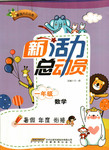题目内容
II.完形填空
Good Heart to Lean on
More than I realized, Dad has helped me keep my balance.
When I was growing up, I was embarrassed (尴尬的) to be seen with my father. He was severely disabled and very___21___,and when we would walk together, his hand on my arm for___22___, people would stare. I would inwardly feel uncomfortable at the unwanted___23___.If he ever noticed or was bothered, he never___24___that he knew.
It was__25___to coordinate (cooperate ) our steps — his hesitant, mine impatient — and because of that, we didn’t___26___much as we went along. But as we started out, he always said,"You set the___27___.I will try to follow you."
Our usual walk was to or from the subway, which was___28___he got to work. He went to work despite illness and nasty weather. He almost never missed a day and would___29___it to the office even if others could not. A matter of___30___.
He never talked about himself as an object of pity, nor did he show any envy of the more fortunate or___31___. What he looked for___32___others was a "good heart", and if he found one, the___33___was good enough for him.
Now that I am older, I believe that his idea is a proper___34___by which to judge people, even though I___35___don’t know exactly what a "good heart" is.___ 36___I know the times I don’t have one myself.
He has been gone many years now, but I think of him often. I wonder if he___37___I was unwilling to be seen with him during our___38___. Now that I am older, I’m sorry that I never told him how sorry I was for my feeling___39___be with him in public and how unworthy I felt to be his daughter. I think of him when I complain about trifles (something unimportant ), when I am envious of another’s good fortune, and when I don’t possess a "good heart".
At such times I put my hand on his arm to___40___my balance, and say, "You set the pace. I will try to follow you."
21.A.strong B.energetic C.short D.handsome
22.A.balance B.strength C.comfort D.courage
23.A.care B.attention C.situation D.friendship
24.A.hoped B.found C.liked D.showed
25.A.easy B.difficult C.possible D.necessary
26.A.see B.pay C.say D.give
27.A.rule B.time C.step D.pace
28.A.how B.why C.when D.where
29.A.get B.make C.take D.walk
30.A.joy B.faith C.belief D.pride
31.A.rich B.successful C.able D.hardworking
32.A.on B.in C.at D.with
33.A.owner B.keeper C.winner D.other
34.A.method B.value C.standard D.level
35.A.yet B.also C.ever D.still
36.A.And B.But C.Now D.Then
37.A.sensed B.smelled C.agreed D.recognized
38.A.walks B.talks C.stays D.visits
39.A.afraid B.proud C.ashamed D.disappointed
40.A.find B.keep C.refill D.regain
21—25 CABDB 26-30 CDABD 31-35 BBACD 36-40 BAACD
【解析】略

 新活力总动员暑系列答案
新活力总动员暑系列答案 龙人图书快乐假期暑假作业郑州大学出版社系列答案
龙人图书快乐假期暑假作业郑州大学出版社系列答案